1260 Memorial Drive
Atlanta, Georgia 30316
404-458-1330
How to Use 4C Natural Hair Afro Clip-Ins with 4C Hair
Mikey MoranSometimes we wear extensions to get styles that we cannot achieve with our hair. Here comes the afro 4C hair!
It’s great to be able to change up your look effortlessly with no problems, but it’s also great to be able to try styles that are not necessarily a whole new look, just an enhancement of your natural appearance!
For my 4c afro sisters, I want you to think about all the times you got a wig or weave that was straight or afro kinky curly. 👩🏾🦱
Now, think about the times you’ve spent money on some that were afro textured or kinky.
What’s the difference?
Like many others, I opt for styles that are nothing like my real hair, but that’s the whole point! You can easily achieve popular 4C hairstyles with the human hair extensions at Private Label.
We can get into that a little later.
But then I realized that I don’t have to keep wearing regular wigs to wait until my hair is long enough to rock natural styles too.
With afro clip-ins, we can instantly give ourselves the length we need to showcase the most beautiful, realistic hairstyles.

Showcasing 4C Natural Hair & Afro Hairstyles
Girls with 4C hair hold the tightest and driest coils of all curly hair.
A kinky texture does not have a defined curl pattern, so it breaks more easily when handled. This is why tighter curls are the most fragile hair type. With heads composed of different textures, there are no two 4C heads that are the same.
I have 4C natural hair and friends who also call themselves 4C, yet our hair appears to be different. I am strictly kinky all around except the baby hairs I have.
My hair grows thick but breaks a lot. I have a friend who is 4C with a little 4B around her head, and her hair is much stronger than mine, but not as thick. To determine the details of your 4C head, check out your curl pattern after washing.
Every type of hair requires special care, so to understand the full composition of your head is vital. We can grow hair as long and as lavish as other hair types; we need to stay dedicated to the thorough process.
Understanding 4C Hairstyles
Why do you think that so many people are shocked to see what natural hair bloggers can accomplish with their hair? Being able to see someone with a similar hair type as you experimenting with their hair gives you the confidence to do more with your hair.
The hate towards African American hair brought a misunderstanding of our hair that caused us to invest in “easier,” more “acceptable” styles.
From our circumstances, however, we’ve been able to generate industries and hairstyles to strengthen and increase black hair care. It’s time we should also invest in 4c protective styles that benefit our natural hair in the long run.
Protective methods allow for low maintenance, so your hair has the space it needs to grow and flourish on its own. 4C afro hair holds braids, twists, and shingling styles for a long time. Any form that gives easy access to roots for daily moisturizing is perfect for a girl with 4C hair.
The shrinkage of afro hair gives you the freedom to achieve various styles as well.
For even longer and fuller styles, natural afro clip-ins are perfect for natural, moisture-locked looks.
Remember earlier we mentioned getting 4C hairstyles with extensions? It's time to get into the details.

Afro Hair Clip-ins
Just as curly and kinky natural hair requires considerable care when handling, any curly or kinky unit you have should often be maintained to ensure the longest lasting quality.
The reason afro clip-ins are a great option is that of the temporary usage. When you’re ready to rock any style, the hair brings life to your look, and when it’s time to sleep or get active, the hair goes back to storage.
It is true that 4C protective styles help your hair’s overall health, but relying too much on human hair wigs or quick weaves can do more harm than good.
The thing about getting any hair extensions is that you should never be dependent on them. Hiding your real hair away for too long and not giving it the proper care as it can result in hair loss or breakage.
By using afro clip-ins, you’re able to keep up with your natural hair and will use extensions only when necessary.
What's the best part of getting your favorite afro hairstyles with clip-ins? Zero damage!
If you aren’t sure of your hair type, how can you possibly know what kind of hair to match your natural hair? This is why it’s important to take into consideration your hair’s behavior all over your head so that you can be able to depict your hair type.
The last thing you want is to have a different curl pattern, making the style less realistic.
Can’t seem to tell your type even after looking? Ask a friend who can tell you or your stylist.
Don’t let ignorance keep you from discovering more about yourself!
There are many companies that design hair units that can match your unique texture.
There’s nothing better than seeing a woman who is confident in her look and style.

Best Times for Afro Clip-Ins
Afro 4C clip-ins can be installed and removed within minutes.
The convenience of this style gives the freedom to change between styles, deciding whether you want to wear them short or long term.
Afro clip-ins are easy enough for daily use, but of course the more you wear, the more you should make sure the hair stayed clean and trimmed if need be.
You save money and time from getting your hair done and catering to your hair on the daily leads to you naturally getting better at styling your hair.
At the end of the day, the best hairstylist for yourself is you, so why not give yourself the chance to learn more every day?
It takes time before anyone can learn different techniques to create lasting styles.
Love your hair and be patient with its care!

4C Styling With Different Hair Lengths
Afro clip-ins are known as one of the safest methods to attain different hairstyles.
There are so many benefits as an afro sister from natural-looking extensions.
The only disadvantages could come from improper styling or short hair, which can result in hair falling out. Shrinkage is not something we should not go against, but rather embrace.
The thickness associated with shrinkage enables us to grasp braided and holding styles correctly. With hair long enough to grip, you can wear clip-ins in 5 simple steps:
Long Hair
Having some inches is very beneficial for afro clip-ins because a strong foundation is all it needs.
Step #1
To prepare for the installation, stretch the hair overnight in braids (or similar).
Step #2
Section off the hair and starting from the bottom, secure the clip-ins by rows (about 2-5). Depending on your desired thickness, you can add as many sections as you want.
Step #3
Blend hair with fingers for an authentic style.
Step #4
You can then part your hair however you’d like for your desired look.

Short Hair
If you’re rocking a TWA, you’re able to put in afro clip-ins for an enhanced look. Luckily with clip-ins, you do not need to cornrow your hair down.
Quick Tip: You can also slick your hair back into a low ponytail and add an afro curly ponytail extension for extra length.
Your hair should feel thick and pure. It takes longer for shorter hair. However, you become faster and get used to it in no time.
Step #1
Start off with spritzed, moisturized hair. Do not comb it out!
Step #2
Section small rows stacked from the bottom of your hair to the top.
Since the hair is not long enough to cover with your real hair, every row should cover another row (about 5-8). Clip as close as you can to your scalp for max hold.
Step #3
Use a rat tail comb to part a section with your real hair for a natural part.
Step #4
Blend your leave out with your fingers, and braid or twist if it needs more definition.
Step #5
Touch up with a spray bottle or oil if desired.
Tip: If you need to dampen the extensions or add any product to them, do so before installing.

Styles to Try
Now that you’ve seen how easy it is to try clip-ins for yourself this summer take a look at some different styles for inspiration and guidance:
Half up, Half Down
This look is very realistic for those with longer hair looking to extend the length.
Tapered Afro
If you’re looking to add some volume to the top of your shortcut, this is perfect to add some edge to your look.
Ponytail
Clip-ins are excellent for the illusion of length to rock high or low ponytails.
Braids and Beads
Add some flair to your afro by adding some braids and beads, which also don’t take much time.
Length and Strength
If you want to add some inches to showcase styles you’ll be doing on your own in 5 years that’s cool too.

Making Your Own Clip-Ins
To save money, a lot of women make their wig or weave units.
We've learned to take time to create hairstyles that favor us perfectly and can last.
Making clip-in extensions are just as comfortable and can be done within a few hours to last you for a few months.
If you choose not to purchase from hair suppliers, you can invest in your clip-ins!
You will first need one to two afro kinky curly bundles.
To make your extensions, you need:
- Scissors
- Weaving Thread
- Wig Clips
- Your hair texture's extensions
- Blow dryer, shampoo, and conditioner (optional)
Step #1
To start, first, measure your extensions so that they are the exact width of your head.
Step #2
After cutting your desired length, you can sew the clips onto the tracks of the hair.
If you feel the need to wash and blow-dry the hair for a different look and feel, you can. If not, you can do it later.
Step #3
When the hair is dry, and you are ready to style, section the hair, and begin to clip!

Finding Yourself Through Natural Hair
As you can see, there’s more to embracing natural hair than waiting until we’re five years into our journey to showcase our kinks and curls.
Seriously, today is the day we take our natural hair journey to the next level and to stop thinking we don’t have time to do more with our looks.
Use each day to learn and practice something new. There is nothing out there about you that you couldn’t handle, so take pride in who you are.
The influence of hair is real; use it to empower yourself. You are a 4C queen, and you should feel like one whether you’re natural or not.
Clip-in extensions are a game-changer for us, so hop on the wave! You can even go to the extent of making your own.
Whatever you do, continue to appreciate your hair type and nurture your hair.
Your hair is your garden, so tend to (and water) it every day.🚿
Tell us about your experience with natural hair clip-ins by leave a comment below!


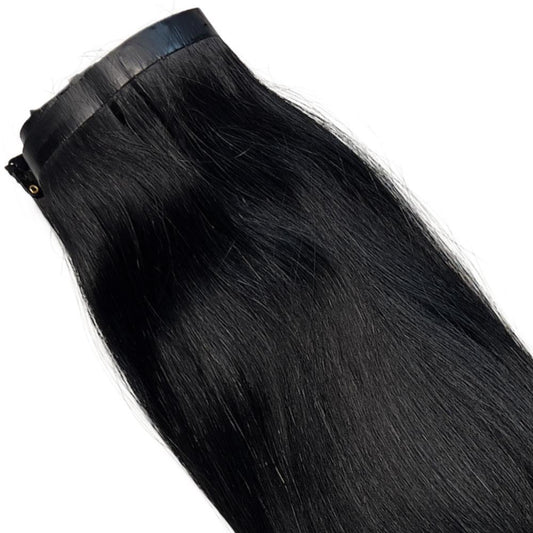
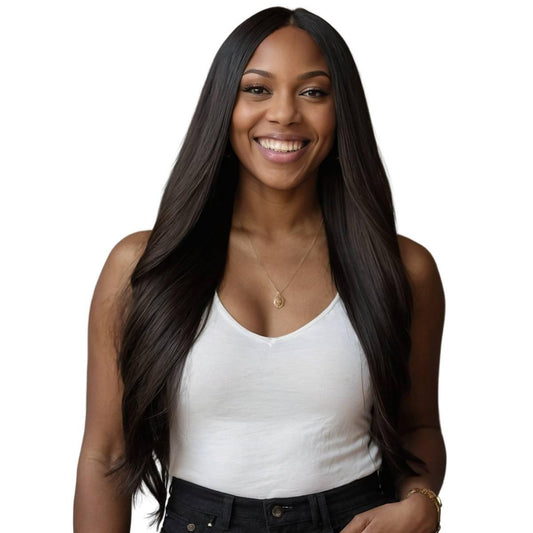
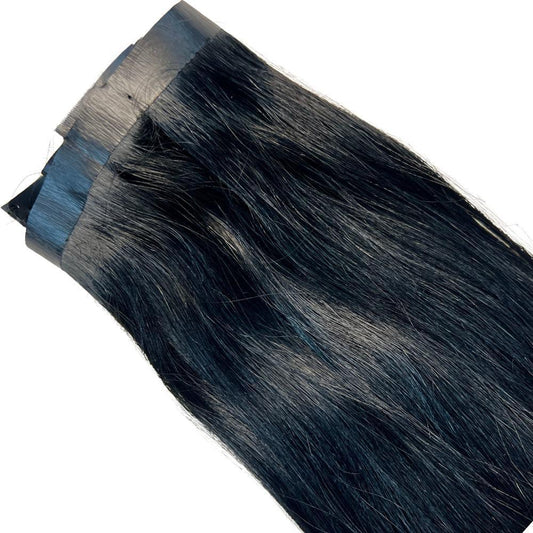
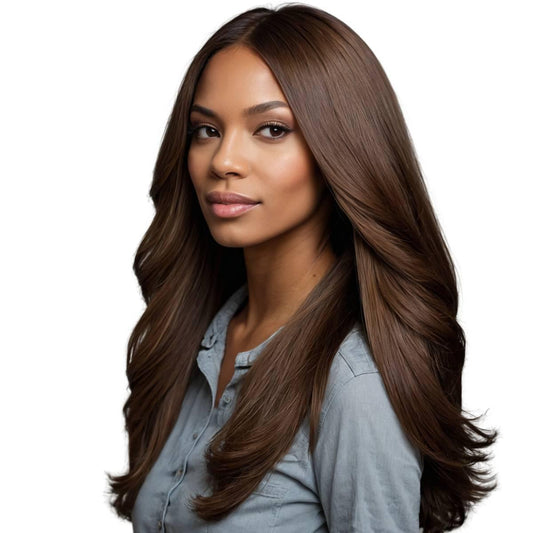
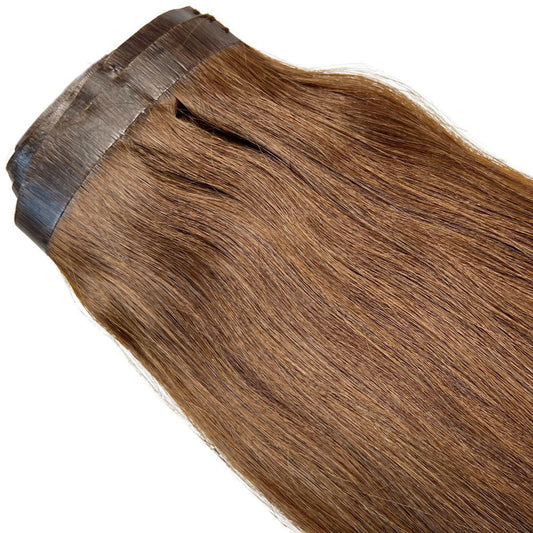
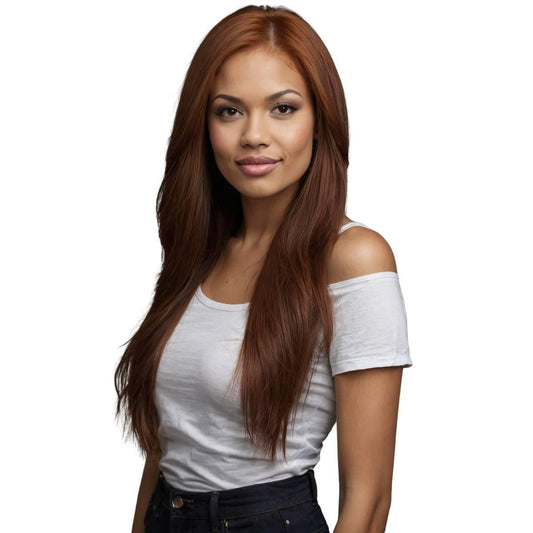
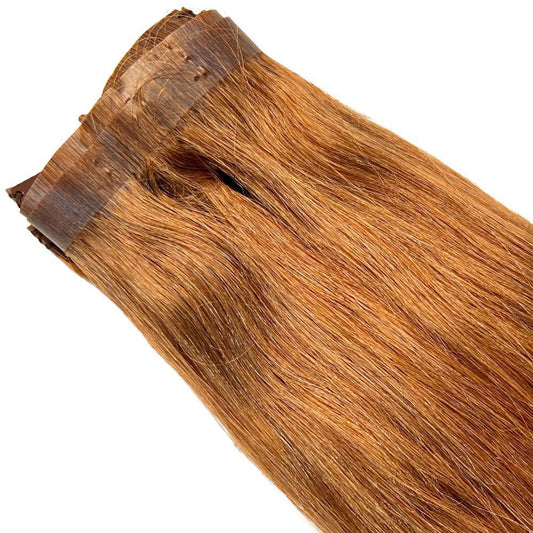
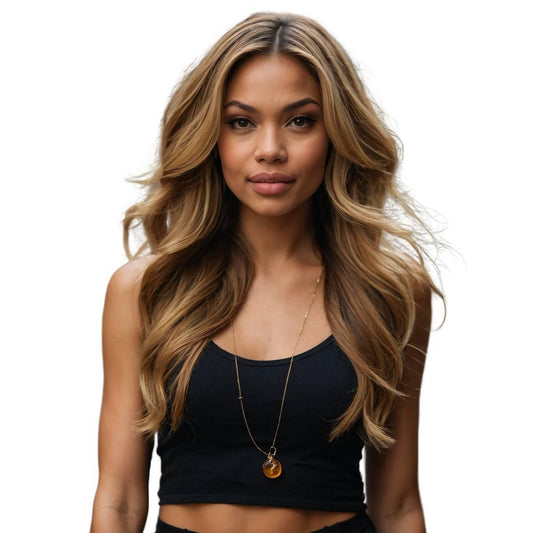
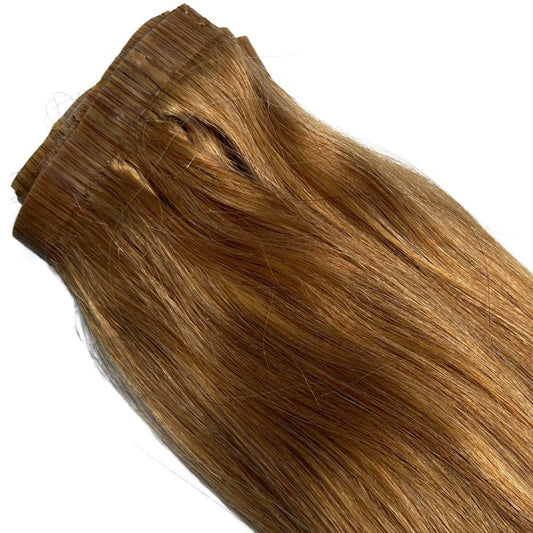
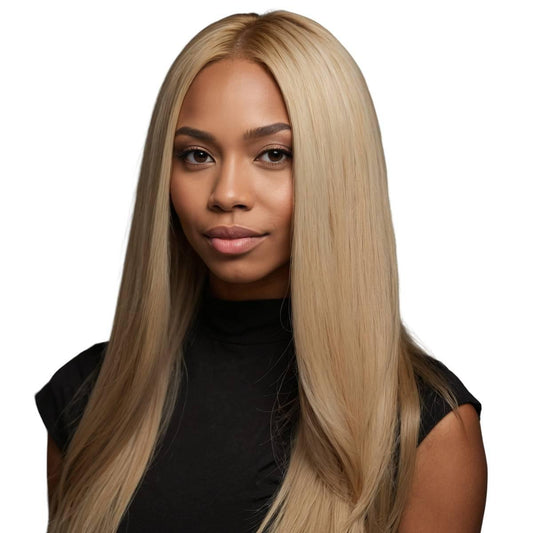
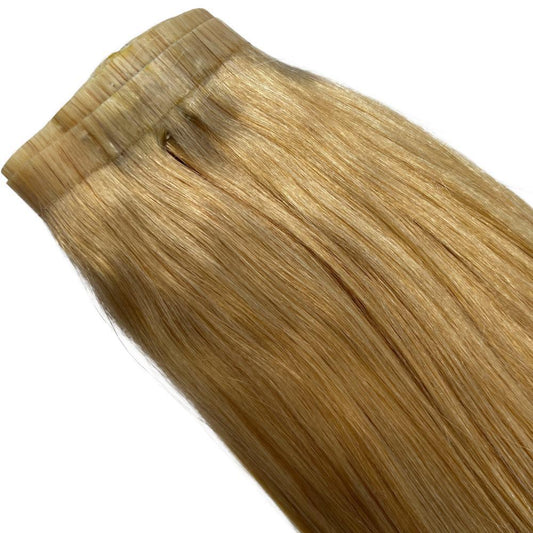
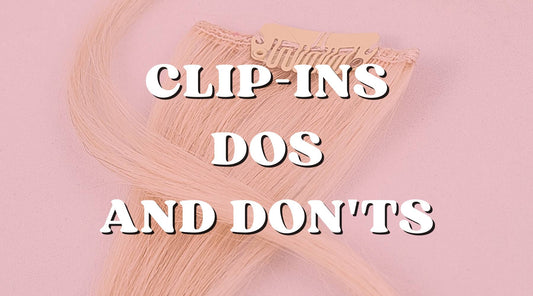
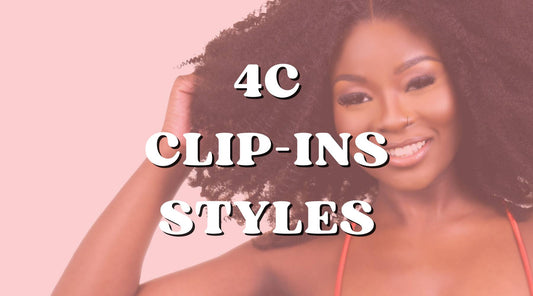
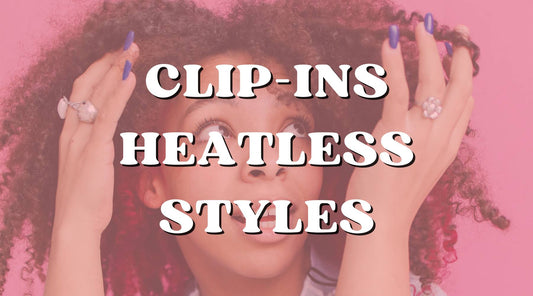
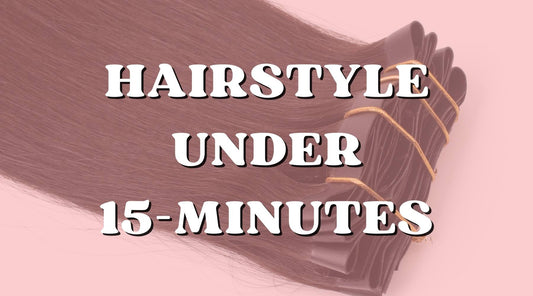
2 comments
Using 4C natural hair clip-ins sounds like a great way to enhance and protect our natural curls while experimenting with different styles. Do you have any specific tips for blending clip-ins seamlessly with very short 4C hair? Also, for those making their own clip-ins, any additional advice on securing the clips to avoid them slipping out?
Mikey, this is such an empowering guide to using clip-in extensions for 4C natural hair! I love how you emphasize embracing our unique textures and styles. Your tips for installation and styling are super practical and inspiring. Looking forward to trying this out and embracing my natural hair journey even more!